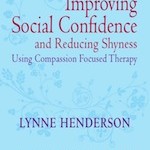
The confidence, wit and occasional hair flick of the extrovert. Who wouldn’t kill for it? But social butterflies are made, not born say experts researching the field (look, someone has to do it). ‘It’s natural to feel shy some of the time,’ says Dr Lynne Henderson, founder of the Social Fitness Center in California and author of Improving Social Confidence and Reducing Shyness (Robinson £15) ‘but anyone can take measures to actively reduce feelings of shyness or social anxiety’.
When you are meeting people on whom you would like to make a good impression, there’s pressure to say something witty and interesting that can leave a shy type crippled with anxiety about not measuring up, Henderson explains. With practice you can learn the skills to work social situations. ‘Just as we need to work out to be physically fit, we need to work out to be socially fit,’ she says. Here’s how
Challenge negative thoughts Acceptance and social support are two of our most basic human needs so its no wonder that at parties and other social gatherings, we can become overwhelmed with thoughts such as ‘Will they like me?’ and ‘Will I say something stupid?’ says Dr Henderson. ‘We call these Negative Automatic Thoughts and just about every human being has them in situations that are important to them often because they’re afraid or nervous. That can make it harder for people to reach us during a conversation because we’re listening more to our negative thoughts than to what the other person is saying and might lead the other person to see us as stand-offish.’ How ‘Ask yourself what evidence you have that they won’t like you or that you will look stupid and the chances are it will be none,’ advises Dr Henderson. Remember too, other people may be feeling the e same way. ‘By smiling and approaching people you are behaving in an accepting way and that will help people feel secure – they will relax and warm to you in return’.
What not to say With strangers or work acquaintances you don’t know well, provocative statements are risky social territory. Avoid generalizations such as ‘All tabloids are low-rent,’ personal opinion such as ‘I hate Barrack Obama’, unsolicited advice, boasting, moaning, teasing or – tempting as it is – asking people what they do. ‘You don’t want to come over as a status sifter or salary sniffer,’ says Catherine Blyth, author of the The Art of Conversation (John Murray £8.99). ‘If they love what they do, you’ll know soon enough.’
Clever compliments Acknowledge what you like about people and say it to them. ‘Think of what you genuinely appreciate in friends, people at work or family and make it a habit to acknowledge that in a positive way,’ says Dr Henderson. ‘Hearing positive things said about us generates oxytocin in the brain, a chemical that stimulates our soothing system and makes us feels warm and friendly.’ Watch someone’s face light up when you give them a compliment – that’s oxytocin at work. How Forget garden variety flattery. ‘Make it genuine and focus on the person rather than a thing,’ she advises. Instead of saying ‘That is a gorgeous dress,’ try ‘That dress looks great on you.’ That says you like them and their appearance – not only their dress. Complimenting someone on the specific way they handled a situation can be hugely rewarding for the other person, Dr Henderson says. Plus, telling another person you find something specific interesting about them opens the door to more conversation. For example, ‘It’s so interesting that you scuba dive, how did you learn …?’
Perfection is over-rated ‘Trying to come across as too perfect – whether its in our uber-amazing entertainment skills or ideal lives – can lead people to think we’re working a little too hard at it so they can’t quite relate to us on a human level,’ says Dr Henderson. ‘Get comfortable with expressing your vulnerabilities and imperfections.’
The old ‘common ground’ trick ‘A lot of people think that to be good conversationalists they have to be Oscar Wilde,’ says Blyth. ‘They often think they need lots of long anecdotes and big jokes but this renders other people the audience and makes it seem like you’re not interested in anyone else.’ The best way to open a open a conversation and to put someone at ease is to look for a common ground between you, she advises. ‘Find instead a small thing you can share and they will be grateful to you.’ How ‘If you have just met someone at a party, little details, specific observations or shared experiences can become your common ground,’ says Blyth. ‘The situation you find yourself in, your connection to the host/hostess, the view, your journey getting there, the canapés, the drinks are all examples of common ground you can start in.’ Starting with a ‘low conversational ambition’ like this makes the other person realize that this isn’t a performance and they don’t have to be particularly instantly witty or interesting, says Blyth. ‘That puts people at ease’.
The staircase of intimacy To get to know someone, try these four steps from Blyth: One, trade courtesies. ‘Hello, how are you?’ Two, trade information. ‘What brought you here?’ or ‘How do you know X?’ Three, trade opinions. ‘Do you know this music? What do you think?’. Four, trade feelings. ‘Yes, I hate it too. What kind of music do you like…?’
Let the pregnant pauses happen ‘Silences happen frequently after you’ve been introduced to someone,’ says Debra Fine, author of The Fine Art of Confident Conversation (Piatkus £8.99). It’s tempting to jump in and ramble on meaninglessly but this is your opportunity to start building your relationship with the other person, so pause – and breathe – and you may find they start the conversation rolling. How Use silences to make an innocuous comment about the setting or something interesting you read in the newspaper (if it’s controversial, don’t personalize it with a feeling or opinion as you don’t know what the other person’s views are yet. ‘Start by letting pauses happen in conversations with people you know well for as long as 40 seconds,’ says Fine. Most lulls in conversations are shorter than 40 seconds so this is good practice for when silences happen during conversations with people you know not-so-well. ‘Breathe and resist the urge to jump in and say something just to fill the gap,’ says Fine. Working pauses into your interactions and being comfortable with short silences encourages the other person to feel they have some space in which to speak.
Avoid sympathy shutters Some phrases seem sympathetic but shut conversation down, says Blyth. For example saying ‘Poor you!’ is like a patronizing pat on the head, she says and ‘That happened to X’ implies the speaker is not the only one with problems while ‘Yes when I did X’ sounds like your favourite subject is yourself! ‘If the person is boring you, there is nothing wrong with strategic interruption,’ says Blyth. ‘Listen for a way to divert the conversation. If they are whining about their stolen car and mention driving on country roads, you could jump in and say ‘Oh I love country travel, have you been anywhere lovely lately?’

Like this article? Sign up to our newsletter to get more articles like this delivered straight to your inbox.




















































